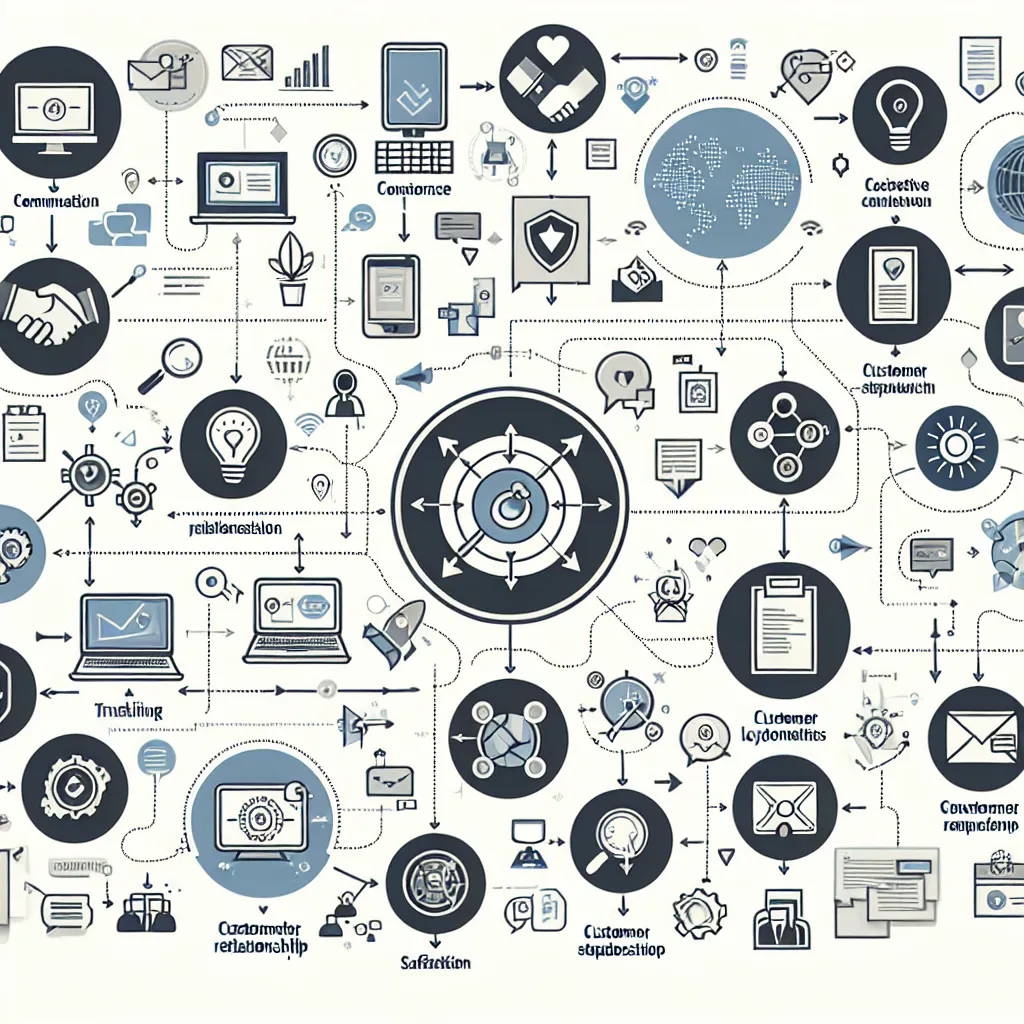In today’s competitive job market, being prepared to discuss technical challenges during interviews is crucial for success. This article will guide you through effective strategies to confidently address questions about technical challenges, helping you stand out as a capable problem-solver in your field.
Understanding the Importance of Technical Challenge Questions
Interviewers often ask about technical challenges to assess your problem-solving skills, technical expertise, and ability to handle complex situations. These questions provide insight into your experience, adaptability, and approach to overcoming obstacles in a professional setting.
How Interviewers Evaluate Your Responses
When you answer questions about technical challenges, interviewers are looking for several key factors:
- Technical knowledge: Your understanding of the specific technologies or processes involved.
- Problem-solving approach: How you analyze and break down complex issues.
- Communication skills: Your ability to explain technical concepts clearly.
- Adaptability: How you handle unexpected problems or changes.
- Teamwork: Your capacity to collaborate with others to find solutions.
 Technical Interview Process
Technical Interview Process
Strategies for Answering Technical Challenge Questions
1. Use the STAR Method
The STAR (Situation, Task, Action, Result) method is an excellent framework for structuring your responses:
- Situation: Briefly describe the context of the technical challenge.
- Task: Explain what you were responsible for in addressing the challenge.
- Action: Detail the steps you took to resolve the issue.
- Result: Share the outcomes of your actions and any lessons learned.
Example:
Interviewer: “Can you describe a time when you faced a significant technical challenge in a project?”
Your response:
“Certainly. (Situation) In my previous role, we were developing a high-traffic e-commerce platform and encountered severe performance issues during load testing. (Task) As the lead developer, I was responsible for identifying the root cause and implementing a solution before our launch deadline. (Action) I led a team in conducting a thorough analysis of our database queries and server logs. We identified several inefficient database calls and implemented database indexing and query optimization. Additionally, we introduced a caching layer to reduce server load. (Result) These changes resulted in a 70% improvement in response times and allowed us to handle three times the initial user load. The project launched on time and received positive feedback for its smooth performance.”
2. Highlight Your Problem-Solving Process
When discussing technical challenges, emphasize your systematic approach to problem-solving:
- Identify the problem clearly
- Gather relevant information
- Analyze potential causes
- Develop and evaluate solutions
- Implement the best solution
- Monitor and adjust as necessary
3. Showcase Your Technical Expertise
Demonstrate your in-depth knowledge by using appropriate technical terms and explaining concepts clearly. However, be prepared to adjust your language if the interviewer is not from a technical background.
4. Emphasize Collaboration and Communication
Highlight instances where you worked effectively with team members or other departments to solve technical challenges. This showcases your ability to collaborate and communicate in a professional setting.
Common Technical Challenge Questions and Sample Answers
- “Describe a time when you had to debug a complex technical issue.”
Sample answer: “In a recent project, we encountered an intermittent memory leak in our mobile app. I led the debugging effort by first reproducing the issue consistently. Then, I used memory profiling tools to identify the problematic code sections. After careful analysis, I discovered that a third-party library was not releasing resources properly. I worked with the library’s developers to find a workaround and implemented additional error handling in our code. This resolved the memory leak and improved our app’s stability significantly.”
- “How do you approach learning new technologies or programming languages?”
Sample answer: “I have a systematic approach to learning new technologies. First, I start with official documentation and online courses to grasp the fundamentals. Then, I build small projects to apply what I’ve learned practically. I also join online communities and forums to learn from experienced developers and stay updated on best practices. For instance, when I needed to learn React for a project, I followed this approach and was able to contribute effectively within a month.”
- “Tell me about a time when you had to optimize the performance of an application or system.”
Sample answer: “In my previous role, we faced performance issues with our data processing pipeline. I led the optimization effort by first profiling the system to identify bottlenecks. We discovered that our database queries were inefficient and our data transformation steps were CPU-intensive. I redesigned our database schema, implemented database indexing, and rewrote our transformation logic to utilize parallel processing. These changes resulted in a 5x improvement in processing speed, allowing us to handle much larger datasets within the same time frame.”
Handling Questions Outside Your Expertise
It’s common to encounter questions about technologies or challenges you haven’t directly experienced. Here are some tips for handling these situations:
- Be honest: Admit when you don’t have direct experience with a particular technology or challenge.
- Draw parallels: Relate the question to similar experiences or technologies you’re familiar with.
- Demonstrate your learning ability: Explain how you would approach learning about the new technology or solving the unfamiliar challenge.
- Ask clarifying questions: This shows your interest and ability to gather necessary information.
Example response: “While I haven’t worked directly with that specific technology, I have experience with similar systems. I’d approach this challenge by first researching the technology’s documentation and best practices. Then, I’d consult with colleagues or online communities for practical insights. I’m confident that with my background in [related technology], I could quickly come up to speed and contribute effectively to solving the challenge.”
Common Mistakes to Avoid When Discussing Technical Challenges
- Overcomplicating explanations: Keep your responses clear and concise, avoiding unnecessary technical jargon.
- Focusing solely on the problem: Ensure you emphasize the solutions and your role in implementing them.
- Neglecting to mention teamwork: Even if you solved a problem independently, acknowledge any collaborative aspects or support you received.
- Failing to provide specific examples: Always back up your claims with concrete instances from your experience.
- Overlooking the learning aspect: Highlight what you learned from challenging situations and how it improved your skills.
Follow-up Questions and How to Answer Them
Interviewers often ask follow-up questions to dig deeper into your experience and thought process. Here are some common follow-ups with tips on how to answer them:
-
“What would you do differently if you faced a similar challenge now?”
Tip: Reflect on lessons learned and demonstrate your growth mindset. -
“How did you ensure the solution was scalable for future needs?”
Tip: Discuss your foresight in design and consideration of long-term implications. -
“Can you elaborate on how you collaborated with other teams during this process?”
Tip: Highlight your interpersonal skills and ability to work across departments. -
“What tools or technologies did you use to diagnose and solve the problem?”
Tip: Showcase your technical toolkit and explain why you chose specific tools. -
“How did you communicate progress and results to stakeholders?”
Tip: Emphasize your ability to translate technical information for non-technical audiences. -
“What was the biggest obstacle you faced during this challenge, and how did you overcome it?”
Tip: Focus on your problem-solving skills and perseverance. -
“How did you ensure the solution met all security and compliance requirements?”
Tip: Demonstrate your awareness of important non-functional requirements. -
“Can you describe any trade-offs you had to consider when implementing your solution?”
Tip: Show your ability to make informed decisions and balance competing priorities. -
“How did you measure the success of your solution?”
Tip: Discuss your use of metrics and data-driven decision-making. -
“What resources or support did you seek out to help solve this challenge?”
Tip: Highlight your initiative in finding resources and your ability to leverage available support.
 Technical Problem Solving
Technical Problem Solving
Conclusion
Effectively answering questions about technical challenges is a crucial skill for success in technical interviews. By using the STAR method, highlighting your problem-solving process, and showcasing your expertise and collaboration skills, you can demonstrate your value as a potential employee. Remember to be honest about your experiences, provide specific examples, and focus on the positive outcomes and lessons learned from each challenge.
Preparation is key to confidently handling these questions. Practice discussing your past technical challenges, and don’t hesitate to seek feedback from peers or mentors. With the right approach, you can turn your experiences with technical challenges into compelling narratives that showcase your skills and potential.
For more interview preparation tips, check out our articles on how to answer questions about strategic thinking and how to answer questions about cross-functional work. These resources will help you further refine your interview skills and present yourself as a well-rounded candidate.




